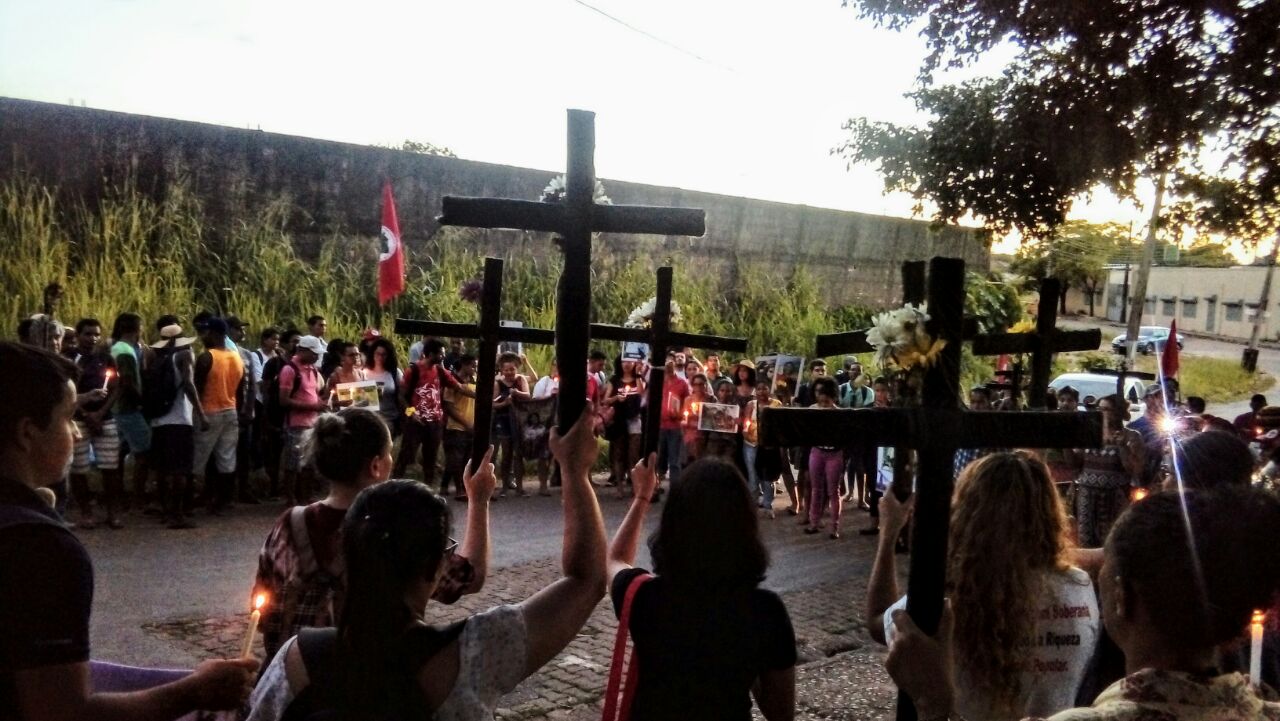Due to Brazil’s parliamentary and corporate coup d’état, which took place in August 2016 with the illegitimate ousting of former President Dilma Rousseff, Brazilian society has faced relentless attempts by conservative politicians seeking to undermine important social welfare protections in the area of labor rights and social security.
As a result of the recent Brazil’s economic crisis, many fear that the legislative policies being promoted by the neo-liberal government of Michel Temer will have particularly devastating impacts on the livelihood of Brazil’s rural population, which in recent months have also been the victims of violent attacks, aggression and assassinations.
In the recent months, there has been a sharp increase in violent repression throughout the country targeting rural agricultural workers, indigenous populations and traditional Afro-Brazilian communities.
According to the Pastoral Land Commission, CPT, killings due to land conflict in Brazil, registered the murder of 61 agricultural workers, which represented the highest number of killings since the organization launched its monitoring initiative.
The most recent incident occurred on May 30th located in the Brazilian town of Redenção, where nine men and one woman were murdered by the Civil and Military police during an eviction order of an occupied farm by landless rural workers.
Witnesses and survivors have refuted police testimony, which claims that the agricultural workers were responsible for inciting the violence, alleging that the peasant families shot at them first. However, no police officer was killed or wounded.
“The police came in shooting,” a witness stated.
Meanwhile, allegations that police officers tampered with the crime scene, has prompted additional anger among members of civil society with regards to the handling of the criminal investigation process.
The most recent massacre in Pará coincides with separate attacks carried out last month against a Gamela Indegnous community in northern Brasil, where armed men launched a brutal assault dismembering the hands and feet of at least two people and leaving dozens of others injured.
Several days leading up to the attacks carried out against the Gamela community, ten peasants living in the northwest of Mato Grosso, were tortured and then subsequently murdered, as part of a reoccurring pattern of violence inflicted upon Brazil’s rural population
The incident also coincided with the anniversary of the tragic killings that occurred in April 1996 when police systematically killed twenty one MST peasants near the town of Eldorado dos Carajás, which sparked outrage and made national headlines.
These seemingly isolated cases of violence take place within Brazil’s larger political context, which has seen a resurgence of conservatism and the rise of right-wing public officials. Brazil’s current political framework also reveals the strengthening of relations between transnational corporations and the government, which provides useful lens to understand the current wave of institutional aggression carried out against Brazil’s rural population.
Land activists worry that the conditions for small scale farmers will worsen under the current illegitimate government of Michel Temer, whose first actions included cutting off the Ministry of Agrarian Development, and reducing financial resources for emblematic programs in food procurement and strengthening family farming.
Meanwhile, Brazilian Senators quietly approved a legislative proposal known as PLV/12 MP/759, completely excluded the input of social movements from participating in the creation of new settlements, which will have dramatic implication on the land allocation and ownership.
Meanwhile, Brazil’s government plans to lift current limits on foreign ownership of agricultural land, an initiative that has been criticized even by the country’s armed forces. However, all of these measures are applauded and well received by the country’s powerful agri-business lobby.
The current political scenario, however, is dynamic and Brazil’s rural population represents a history of resistance and struggle. Thus political resistance in this current political scenario, as a movement for the right to land, we must focus on the restoration of democracy to country.
The success of the movements for the right to land in Brazil is contingent upon the removal of the Temer administration along with the conservative members of congress. Therefore, we issue a call to the entire country as well as a call for global solidarity: “Out Temer! Direct elections now in Brasil!”
By Marina dos Santos, from MST National Direction

